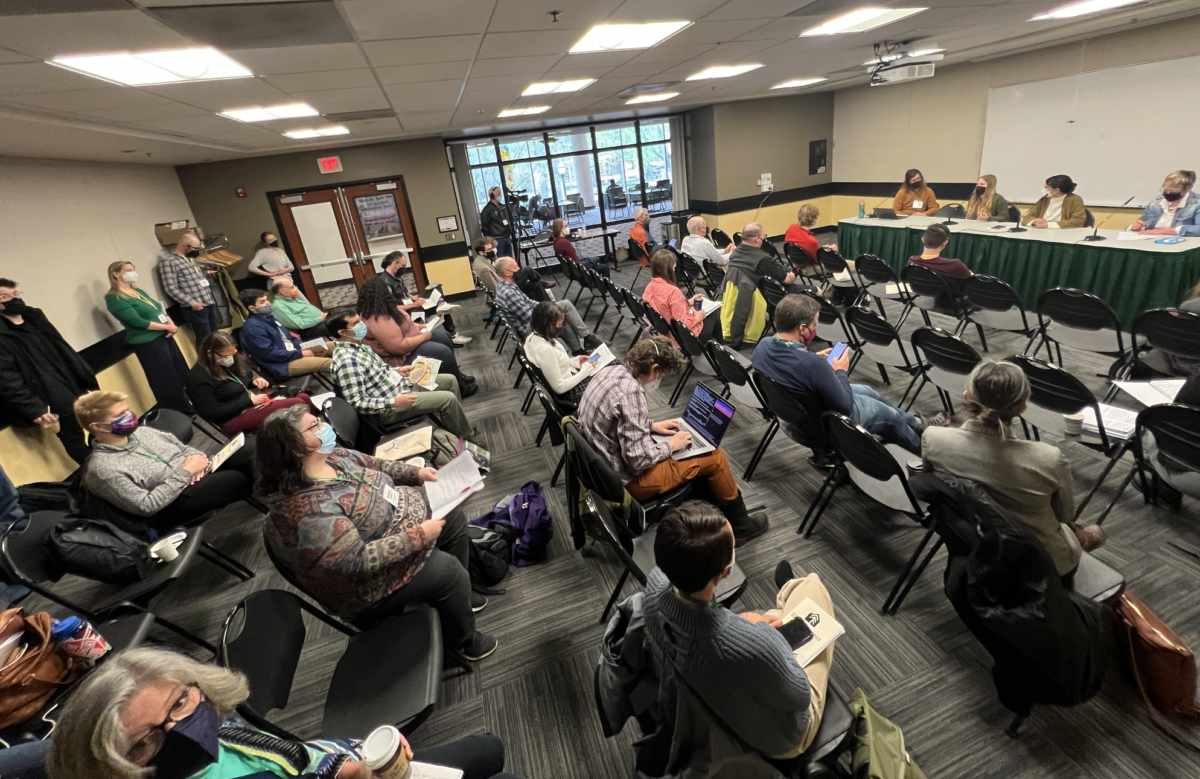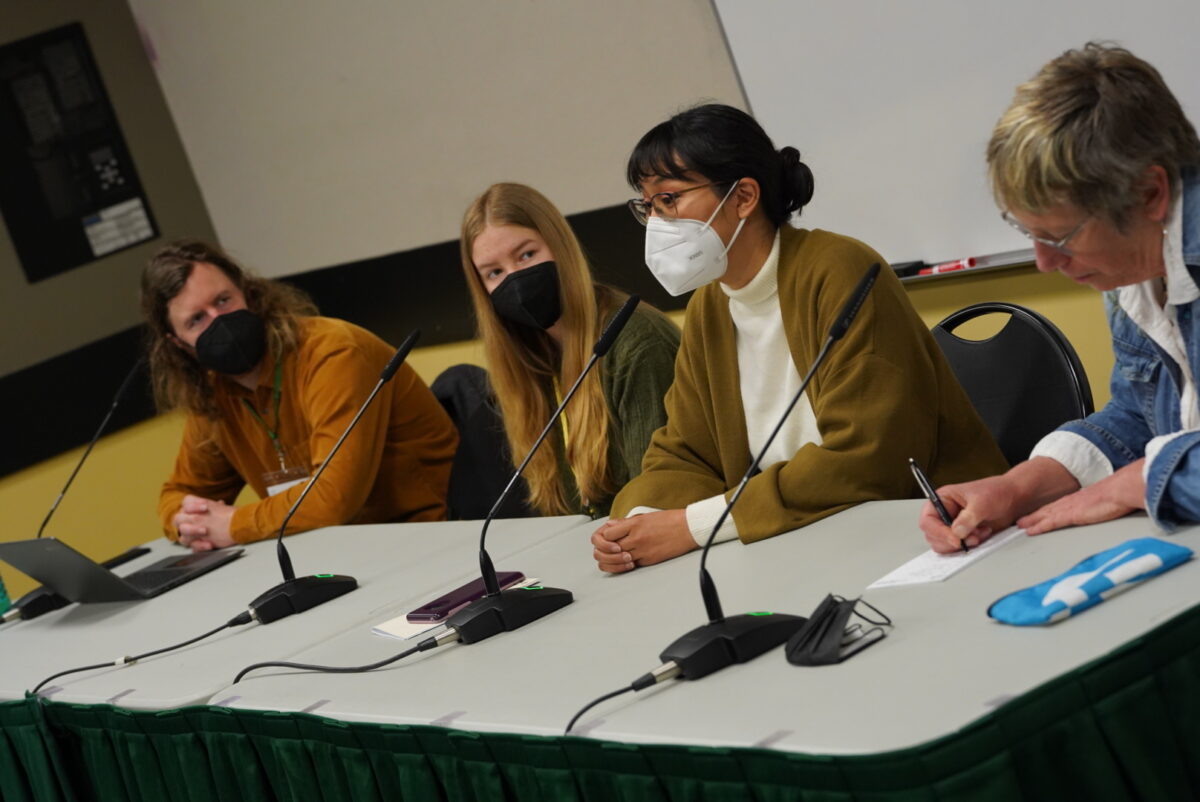
(Photos: Jonathan Maus/BikePortland)
At its current rate of growth, the freeway fighting industrial complex just might challenge the strength of the freeway industrial complex in the near future.
“They got called out on their numbers, on something they’ve been able to hide all along.”
— Martha Roskowski, Further Strategies
At day two of the YIMBYtown conference at Portland State University, some of the nation’s toughest freeway fighters gathered into a room to share their experiences and insights. The panel included veteran transportation expert Martha Roskowski, Adah Crandall with Sunrise Movement PDX and southern California-based activist Alex Contreras of the Happy City Coalition. The panel was moderated by Ryan Packer, senior editor at The Urbanist and BikePortland’s special correspondent on the Interstate Bridge Replacement Program.
The popular panel was just the latest illustration of a burgeoning national movement. We’ve seen Portland’s place in this movement grow considerably over the past few years thanks to efforts to stop the I-5 Rose Quarter project led by groups like No More Freeways and Sunrise Movement. Turns out there are similar efforts all over the country.
Advertisement

Roskowski, an omnivore when it comes to transportation reform work, said she’s currently working to establish the Freeway Fighting Resource Center. In the crowd of the panel was Ben Crowther who runs the Highways to Boulevards program for Congress of New Urbanism. He hosts an email list for freeway fighters that boasts dozens of members from all corners of the U.S.
Asked by Packer if they think the narrative around freeways is changing, Contreras said she feels the narrative on the advocacy side has always been clear about the ills of massive interstates and the impacts they have on people — especially Black, Indigenous and people of color. “The narrative changes depending who’s in power. It depends on who is elected, who we appoint to transportation departments and who’s going to uplift our narrative.”
One way these activists have shifted the narrative is to remind freeway builders that their projects are not special. While PR teams and consultants will try their best find unique selling propositions for their particular project (claiming it’s about safety or freight capacity or even restorative justice), the impacts are always the same: induced demand and the negative consequences that follow.
Roskowski plugged a new tool, the Rocky Mountain Institute’s SHIFT Calculator, as a key piece of the freeway fighting arsenal. After activists in Colorado used the calculator to show it would have twice as much VMT increase as the state DOT said it would, Roskwowski said staff became “unglued.”
Advertisement
“I’m here to speak my truth. I’m here to say what I have to say. And if you don’t listen, that is on you. That is not on me.”
— Alex Contreras
“They got called out on their numbers, on something they’ve been able to hide all along. Because this stuff is so wonky, people don’t really dive into the modeling,” she shared.
But data can only win so many skeptical minds, and hearts are rarely moved by it.
Crandall, who’s been fighting freeways since 7th grade and is now in high school, has had success by amplifying youth voices. Asked by Packer how she gets people to take her seriously, she said it’s a benefit and a challenge.
“It can be sort of shocking to people to see young people show up in these spaces. Where it’s normally just a lot of old bureaucrats at obscure government committee meetings. In a way, that gets people’s attention that is powerful and useful to us, but it also makes us easier to dismiss because a lot of people can write off as like, ‘Well, they’re 16, they don’t know what they’re talking about.”
For that and other reasons, Crandall said youth activism needs support from adults to back them up.
Contreras, a Mexican-American who says “I’m here for a good time, not a long time, because my life has already been cut 10 years short by living next to a freeway,” shared that some people will never take them seriously because of their age, gender, and race. “Some people will always dismiss you, and that’s just something you have to deal with. And that is freeing in some ways. I’m able to walk into a room and just be able to be like, ‘You know what, I’m here to speak my truth. I’m here to say what I have to say. And if you don’t listen, that is on you. That is not on me.'”
“When it comes to fighting freeways, you have to go big or go home,” Contreras urged. “To shut these expansions down and to get housing built, you need federal and statewide reform.”
That type confidence is a great metaphor of where the freeway fighting movement is in America today. Instead of sitting idly by and accepting whatever DOTs want to do, these activists are getting smarter and stronger. And they’re coming for a freeway near you.
– For more from YIMBYtown, follow us on Twitter @BikePortland.


